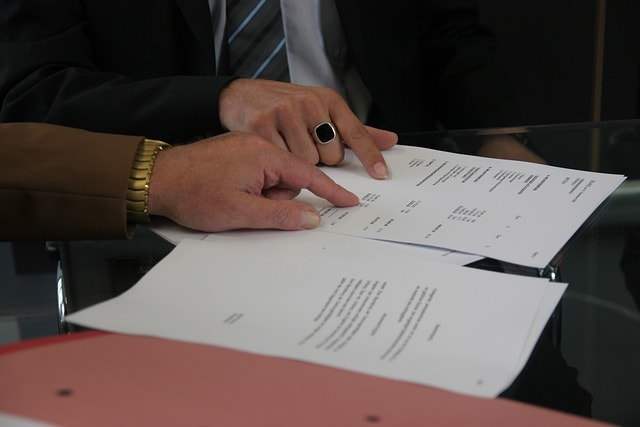What Rights Does A Tenant Have Without Lease: A Comprehensive Guide

Introduction
Renting a property without a formal lease agreement is more common than you might think. In California, tenants have significant rights even without a written lease. This comprehensive guide will explore the protections and responsibilities of tenants in month-to-month or verbal rental agreements.
Understanding these rights is crucial for a harmonious rental experience, whether you’re a tenant or a landlord.
Understanding Month-to-Month Tenancies

What is a Month-to-Month Tenancy?
A month-to-month tenancy is a rental agreement where the tenant pays rent monthly without a fixed end date. This arrangement offers flexibility but also comes with its own set of rules and protections.
How is a Month-to-Month Tenancy Created?
A month-to-month tenancy can be created through an oral agreement, which holds legal standing in many jurisdictions, or when a fixed-term lease expires, and the tenant continues to pay rent, which the landlord accepts.
Key Rights of Tenants Without a Lease

Right to Habitable Living Conditions
Property owners must provide habitable living space, even without a written lease. This includes working plumbing, heating, electrical systems, and a structurally sound building.
Protection Against Discrimination
California law prohibits discrimination based on race, religion, gender, sexual orientation, and other protected characteristics, regardless of lease status.
Right to Privacy
Tenants have the right to quiet enjoyment of their rental unit. Landlords must provide proper notice before entering the property, typically 24 hours in advance.
Protection Against Retaliation
Landlords cannot retaliate against tenants for exercising their legal rights, such as requesting repairs or joining a tenant organization.
Rent and Payment Terms

Establishing Rent Amount
Without a lease, the rent amount is typically set by verbal agreement. Clear communication about the expected rent and due date is crucial.
Documenting all rental payments is essential to avoid disputes and protect both parties.
Rent Increases
In California, landlords must provide proper notice for rent increases, an essential aspect of tenant obligations, including paying rent. For increases up to 10%, 30 days’ notice is required. For increases over 10%, 90 days’ notice is mandatory.
Security Deposits
Landlords can still require security deposits but must follow state laws regarding the maximum amount and return procedures.
Termination and Eviction

Proper Notice for Termination
Both tenants and landlords must provide proper notice to end a month-to-month tenancy. This is usually 30 days, but it can be 60 days if the tenant has lived in the unit for more than a year.
Just Cause Eviction
In many California cities, landlords must have a “just cause” to evict a tenant, such as non-payment of rent or violation of rental terms.
Eviction Process
Even without a lease, landlords must follow the formal eviction proceedings, including providing written notice and obtaining a court order.
Maintenance and Repairs

Landlord’s Responsibility
Landlords are responsible for maintaining the property and making necessary repairs, even without a written lease agreement.
A written agreement can simplify the process of requesting and enforcing repairs, ensuring both parties understand their responsibilities and legal protections.
Tenant’s Right to Repairs
If a landlord fails to make essential repairs, tenants may have the right to “repair and deduct” or withhold rent under certain circumstances.
Subletting and Additional Occupants

Rules for Subletting
Tenants generally have the right to sublet without a lease specifying otherwise, but it’s always best to communicate with the landlord first.
Guests and Additional Occupants
Tenants have the right to have guests, but long-term or additional occupants may require landlord approval.
Local Rent Control Laws
Impact of Rent Control
Many California cities have rent control ordinances that apply to month-to-month tenancies, limiting rent increases and providing additional tenant protections.
Tenant Protections Under Rent Control
Rent-controlled units often have stricter eviction protections and may require relocation assistance in certain circumstances.
Resolving Disputes
Mediation Services
Many California cities offer free or low-cost mediation services to help resolve landlord-tenant disputes without going to court.
Small Claims Court
Small claims court can be an effective option for disputes involving smaller amounts of money for tenants and landlords.
Documentation and Communication
Importance of Written Records
Even without a formal lease, keeping written records of all communications, rent payments, and agreements with your landlord is crucial.
Using Email and Text Messages
Electronic communications can serve as valuable documentation in case of disputes.
Rights in Foreclosure Situations
Tenant Protections During Foreclosure
California law protects tenants, including the right to proper notice, if their rental property goes into foreclosure.
Conclusion
While renting without a lease might seem risky, California law substantially protections tenants in month-to-month arrangements. By understanding your rights and responsibilities, you can navigate your tenancy with confidence.
Remember, clear communication and documentation are critical to a successful landlord-tenant relationship, regardless of whether you have a written lease.
FAQs
Q: Can a landlord evict me without a reason if I don’t have a lease?
A: In many California cities, landlords must have a “just cause” to evict, even for month-to-month tenancies. Check your local laws for specific protections.
Q: How much notice does a landlord need to give for a rent increase without a lease?
A: For increases up to 10%, 30 days’ notice is required. For increases over 10%, 90 days’ notice is mandatory in California.
Q: Can I withhold rent if my landlord doesn’t make the necessary repairs?
A: Yes, under certain circumstances. However, it’s crucial to follow proper procedures and document everything to protect yourself legally.
Q: Do I have the right to a jury trial in an eviction case without a lease?
A: Yes, tenants in California have the right to request a jury trial in eviction cases, regardless of lease status.
Q: Can my landlord enter my apartment without notice if I don’t have a lease?
A: No, landlords must provide proper notice (typically 24 hours) before entering, except in emergencies, regardless of lease status.
Related Terms: Lease or rental agreement, property owner, tenancy agreement, month-to-month lease, evict tenants, either the tenant, residential leases, lease period













